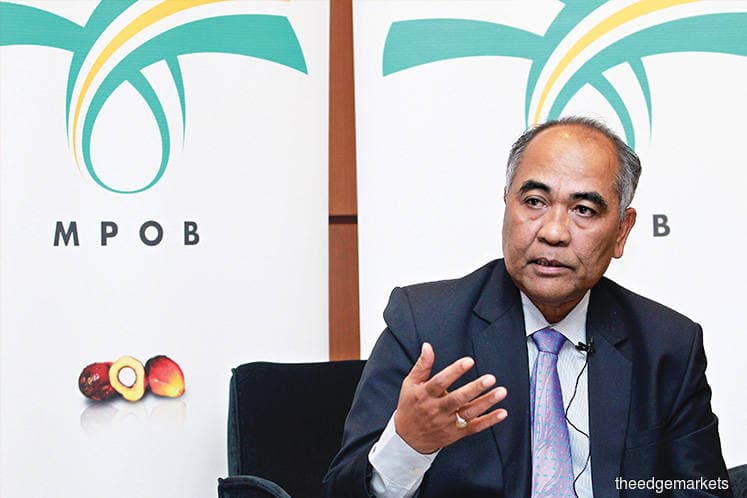
This article first appeared in The Edge Financial Daily on November 17, 2017
KUALA LUMPUR: Malaysia may not be able to hit the palm oil yield target of six tonnes per hectare by 2020 due to factors such as weather conditions and poor management, says the Malaysian Palm Oil Board (MPOB) director-general Datuk Dr Ahmad Kushairi Din.
“I am sceptical about hitting the target set under the 12 National Key Economic Areas for 2020. We are not on target. There are only three years to go,” he said, adding that the country’s palm oil yield has been stagnating over the last few decades.
Last year, the average crude palm oil yield was 3.21 tonnes per hectare, while the fresh fruit bunch (FFB) yield and oil extraction rate (OER) came in at 15.91 tonnes/ha and 20.18% due to the prolonged El Nino weather conditions.
“We have discussed about the target based on practicality. Last year, our FFB yield and OER were down. That is why I am a bit sceptical achieving the target. Anyway, it was a challenge posed in our lab session in 2010.
“There was a lot of argument on the FFB yield and OER. The six-tonne target was reached by multiplying the FFB yield and OER. It was based on the lab outcome and eventually implemented,” he said.
Ahmad Kushairi said many factors affected the target such as the weather and lack of replanting efforts.
“Some plantation companies can produce six tonnes to eight tonnes but many smallholders are low. That is why we keep emphasising on the replanting programme,” he said.
In the meantime, efforts are under way to increase production including the introduction of biotechnology, genome studies, drones, and nano technology into the segment.
“We must have these technology apart from strategies, and regulations to ensure the industry does not go haywire,” he told reporters on the sidelines of the International Palm Oil Congress and Exhibition yesterday.
He said the yield should increase with the Malaysian Sustainable Palm Oil (MSPO) certification which touches on sustainable production, good agriculture practice, social equality and maintenance of high conservation value forests.
On smallholders, Ahmad Kushairi said there are more than 650,000 of them who make up 40% of planted area in Malaysia, and the government hopes to raise their income level to RM4,000 per household by 2020 from an average of RM2,000 now.
“But this depends on the cost of production, and crude palm oil price that is determined by market forces. At present, it is about RM2,700 per tonne. To ensure the price remains high, the government and agencies are exploring new markets and boosting existing markets,” he reiterated.
Ahmad Kushairi said smallholders would not need to fork out any funds for the MSPO certification as each farmer would get RM130 per hectare from the government, covering 100% of the cost of MSPO certification, auditing, personal protective equipment and cabinet storage for chemicals.
Cumulatively, smallholders cultivate about 2.3 million hectares of land as of September this year, and own an average of 3.9ha per smallholder.
“In Peninsular (Malaysia), farmers own an average of 3.8ha to 3.9ha, while in Sabah average ownership is 6.3ha and Sarawak 5.8ha. Felda settlers own an average of 4ha,” he said, adding that smallholders can access the aid for MSPO certification via MPOB.
Asked about the issue of illegal foreign workers in oil palm plantations, he said MSPO, which follows Malaysian laws, requires smallholders to employ legal workers.
“Under the sustainable palm oil cluster, which smallholders are encouraged to form to gain MSPO certification, they can raise or pool funds as a cooperative to employ proper help,” he said.
He also said smallholders would not be phased out with the mandatory requirement for MSPO certification, as they can rely on the cooperative structure and become self-sustaining entities.
He added that records have shown that profit improved by 15% to 20% as it eliminates the middlemen when smallholders form cooperatives.